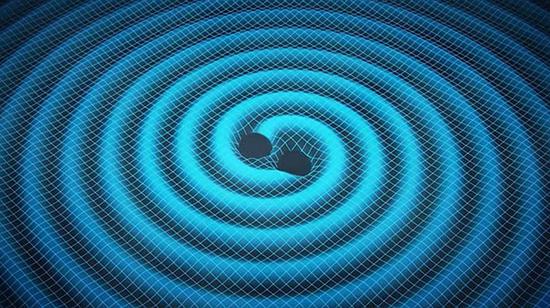

Visualization - Gravitational waves generated by a binary system. (Photo/NASA)
Although gravity is as fundamental to our life as breathing, how hard is it to measure it accurately? A group of Chinese researchers recently has measured the most precise estimates for the strength of gravity by using two independent methods.
According to a paper published in Nature magazine on Thursday, a research team led by Luo Jun, academician from the Chinese Academy of Science, has measured the relative uncertainty of G, the Newtonian gravitational constant, at 12 ppm, the smallest relative uncertainty.
The last recorded relative uncertainty was 26 ppm, which was also measured by Luo Jun's team in 2009. The team measured the first G constant in 1999, which was later adopted by the Committee on Data for Science and Technology, an interdisciplinary committee of the International Council for Science.
Back to 1798, the scientist Henry Cavendish determined G for the first time in the laboratory, using an instrument called a torsion balance. After that, despite two centuries of experimental efforts, the value of G remains the least precisely known of the fundamental constants.
Luo Jun and his team carried out the two independent determinations of G using torsion pendulum experiments with the time-of-swing method and the angular-acceleration-feedback method.
Although it is not the first time the two measurements are being used, there are still numerous involved technical details and devices need to be developed.
The team has developed an array of sophisticated apparatus which have been applied in the research of the field of earth gravity and geologic prospecting.
These self-developed apparatus will also help promote the Tianqin project, which focuses on the research of key technologies in space gravitational wave detection. (China Daily)

86-10-68597521 (day)
86-10-68597289 (night)

52 Sanlihe Rd., Xicheng District,
Beijing, China (100864)

